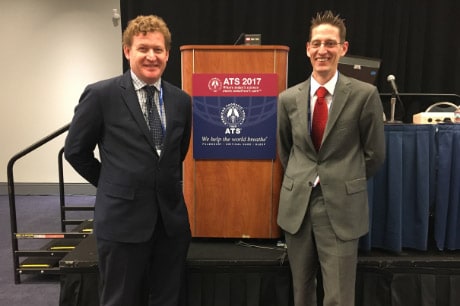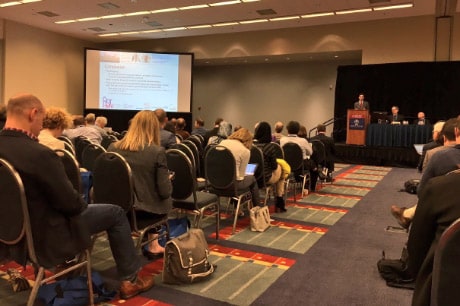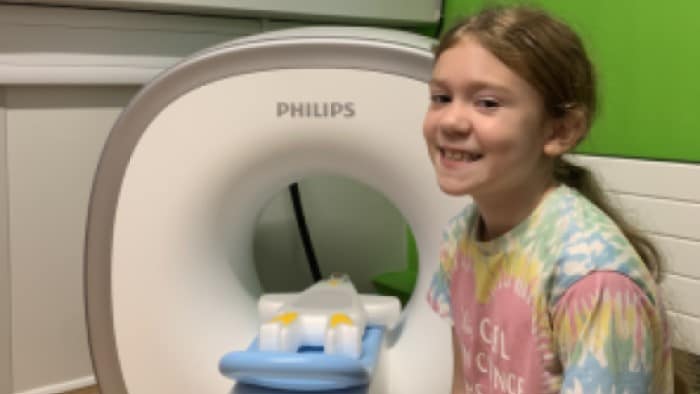May 22, 2017
Philips-sponsored clinical study demonstrates significant breakthrough for COPD treatment
Study showed use of home non-invasive ventilation in conjunction with home oxygen therapy delayed hospital readmissions for patients with advanced disease
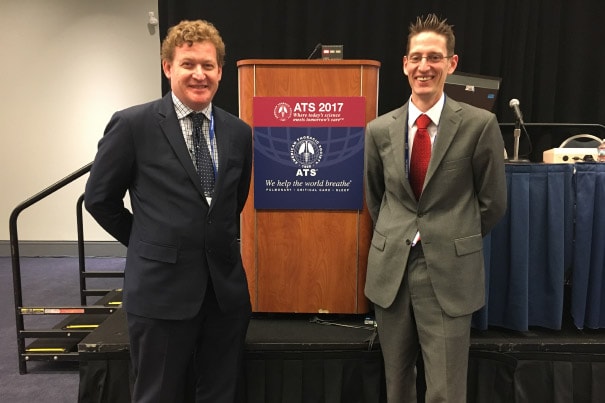
Amsterdam, the Netherlands – Recently published advancements in pulmonary research suggest that the combination of non-invasive ventilation (NIV) and home oxygen therapy (HOT) can significantly prolong time to readmission or death for patients with chronic obstructive pulmonary disease (COPD) following a life-threatening respiratory event or exacerbation. The five-year, multi-center study resulted in prolonged median time to readmission or death by nearly three months, and improved patient health-related quality of life in the first six weeks. “Patients with severe COPD and persistent hypercapnia have historically had limited therapy options available to them and outcomes have generally been poor,” said Dr. Nicholas Hart, Professor and Clinical Director of Lane Fox Respiratory Service, St Thomas’ Hospital in London. “The trial suggests that combining home oxygen and home non-invasive ventilation therapy can reduce hospital readmissions while maintaining patients’ quality of life, which will drastically change the way we approach COPD treatment worldwide. We are looking forward to hopefully decreasing the mortality and readmission rates that result from severe COPD with further research.” The randomized clinical trial of 116 patients in the United Kingdom was co-sponsored by Royal Philips (NYSE: PHG; AEX: PHIA) and carried out by respiratory experts at St Thomas’ Hospital in London. The results showed that the addition of home NIV prolonged the median time to readmission or death from 1.4 months to 4.3 months.
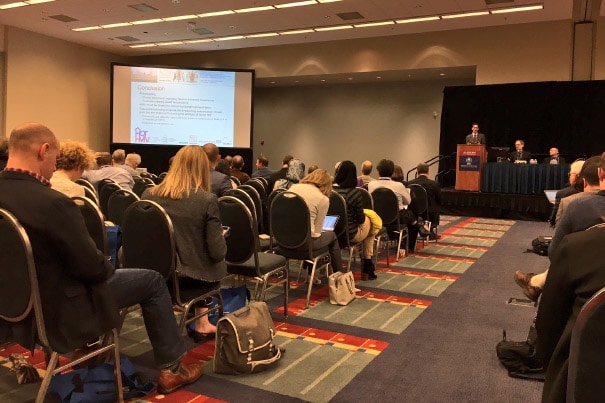
“This study shows that home noninvasive ventilation is a potent, therapeutic tool that clinicians can use to help keep patients with advanced COPD out of the hospital. We hope that this will, in turn, allow them to lead healthier and more active lives at home,” said Dr. Teofilo Lee-Chiong Jr., Chief Medical Liaison at Philips. “These findings add considerably to our knowledge of this highly prevalent and debilitating respiratory disorder, and are expected to greatly influence how clinicians care for patients with COPD on long-term oxygen therapy.” Preliminary results from this trial were announced in September 2016 at the European Respiratory Society’s International Congress in London, U.K. The final paper, entitled Effect of home non-invasive ventilation with oxygen therapy vs. oxygen therapy alone on hospital readmission or death after an acute COPD exacerbation: A randomized clinical trial, was published in the Journal of the American Medical Association after being presented at the American Thoracic Society International Conference (Washington DC, US, May 19 – 24). In April 2017, another Philips-sponsored study demonstrated significant cost savings for payers and hospitals from reduced COPD readmission rates resulting from a multifaceted care program that included the use of AVAPS-AE, a proprietary mode of non-invasive ventilation in the Trilogy device. Philips’ sponsorship of these studies is the latest in the company’s continued commitment to pioneering the development of home NIV technologies and ultimately help COPD patients breathe easier. Philips works every day to support COPD patients and help them improve their quality of life by offering a range of solutions, including advanced NIV therapies such as the DreamStation BiPAP AVAPS and S/T, BiPAP A40 (available outside the United States) and Trilogy. Today, Philips is enabling more efficient patient management with the expansion of its connected Trilogy and Care Orchestrator, now commercially available in North America. For additional information on Philips’ solutions for sleep and respiratory care, follow @PhilipsResp or visit www.respironics.com.
About Royal Philips
Royal Philips (NYSE: PHG, AEX: PHIA) is a leading health technology company focused on improving people's health and enabling better outcomes across the health continuum from healthy living and prevention, to diagnosis, treatment and home care. Philips leverages advanced technology and deep clinical and consumer insights to deliver integrated solutions. Headquartered in the Netherlands, the company is a leader in diagnostic imaging, image-guided therapy, patient monitoring and health informatics, as well as in consumer health and home care. Philips' health technology portfolio generated 2016 sales of EUR 17.4 billion and employs approximately 70,000 employees with sales and services in more than 100 countries. News about Philips can be found at www.philips.com/newscenter.
